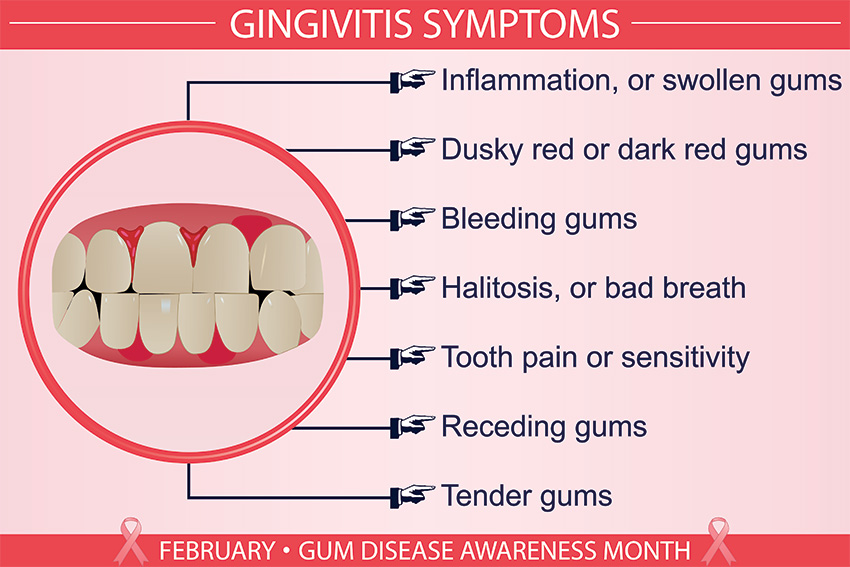
February is National Gum Disease Awareness Month and is meant to create awareness about gum disease. It is one of the leading causes of tooth loss in the US. Gum disease in its mildest form is called gingivitis but can develop into periodontitis if untreated. It all begins when your teeth form plaque. It is a sticky film, also known as biofilm, formed by many living organisms. Plaque is formed when bacteria in the mouth mix with sugary or starchy substances. When not removed, it accumulates minerals from saliva and consolidates into a white or yellow substance called tartar. Your mouth is an ecosystem where organisms and bacteria reside. Did you know 700 types of bacteria live in a human mouth? Not all bacteria are harmful to your mouth; some are good for oral health. Some of the bacteria help you digest food while destroying the bad ones. When you drink, eat, or breathe, bacteria prey on it. But most of the time, your oral ecosystem is balanced; however, bad bacteria convert sugary foods into acids supporting plaque buildup. Too many bad bacteria can result in gum disease and infection in the soft tissues of your mouth.
Gum disease is the most common and consists of developing stages starting from gingivitis. The gums are red, swollen, and can bleed easily, and if not treated accordingly, it may lead to a more severe problem called periodontal disease. Diagnosing and treating it in the first stage can reverse the condition and prevent tooth loss. To prevent gum disease, everyone needs to practice oral hygiene. Not paying attention to dental health and poor oral hygiene can lead to the condition. Some of the other risk factors are:
- Smoking
- Poor nutrition
- Diabetes
- Hormonal fluctuations
- Substance Abuse
- Stress
- Medications
- Genetic predisposition
When you ignore your oral health and experience the signs or symptoms of gingivitis, it can advance to the next stage, periodontitis. Plaque spreads and grows deep below and irritates your gums. Chronic inflammation and tissue and bone that support teeth can start to break down. There are several forms of periodontitis, such as:
Aggressive periodontitis: Healthy patients can get aggressive periodontitis by genetic disposition.
Chronic periodontitis: It is the most common form of gum disease that slowly progresses and is most prevalent in adults.
Necrotizing periodontitis: An infection that causes tissue damage, resulting in lesions. The disease most commonly affects patients with HIV or other systemic diseases.
Periodontitis as a manifestation of systemic disease: It often starts young in patients with respiratory problems, heart problems, or diabetes.
If your gums appear red or bleed while flossing, you should schedule an appointment with Foothill Dental Care at (925) 961-5484 today.
